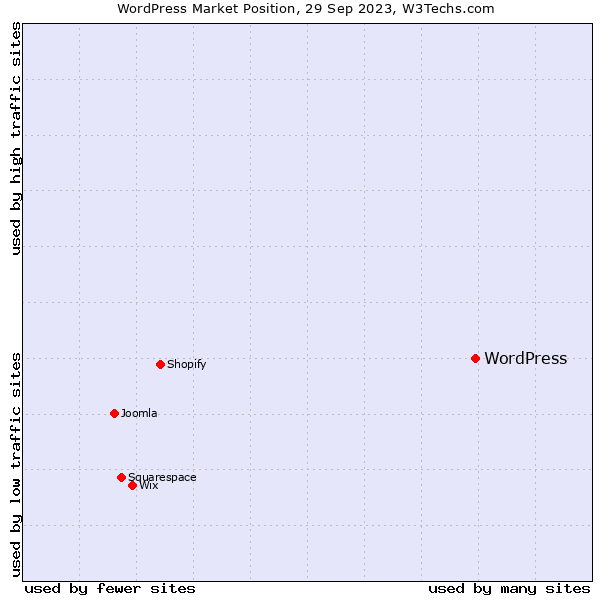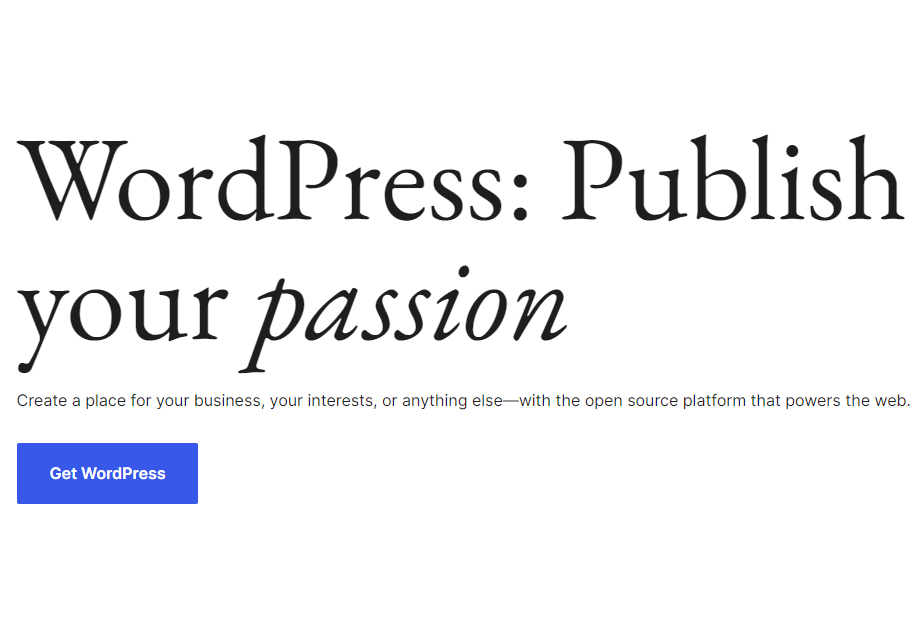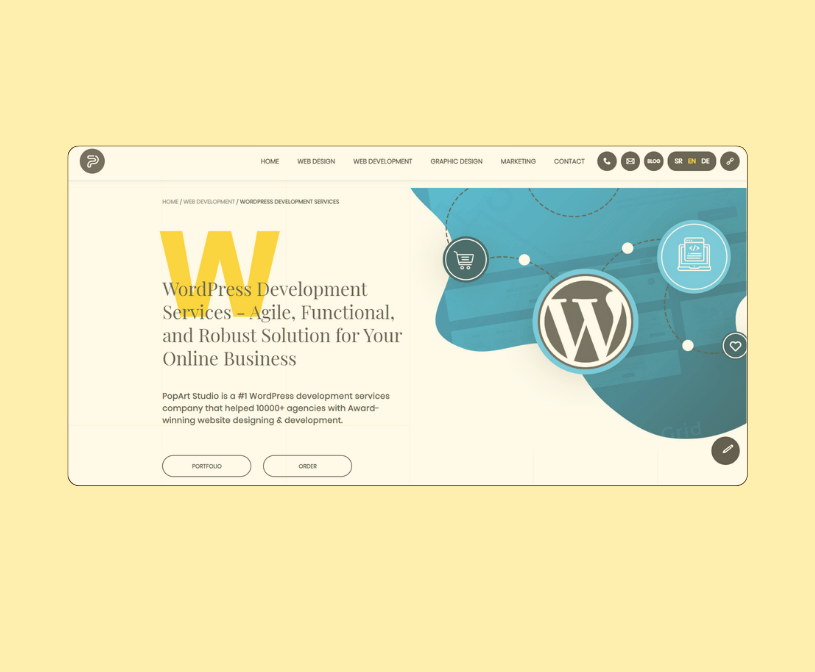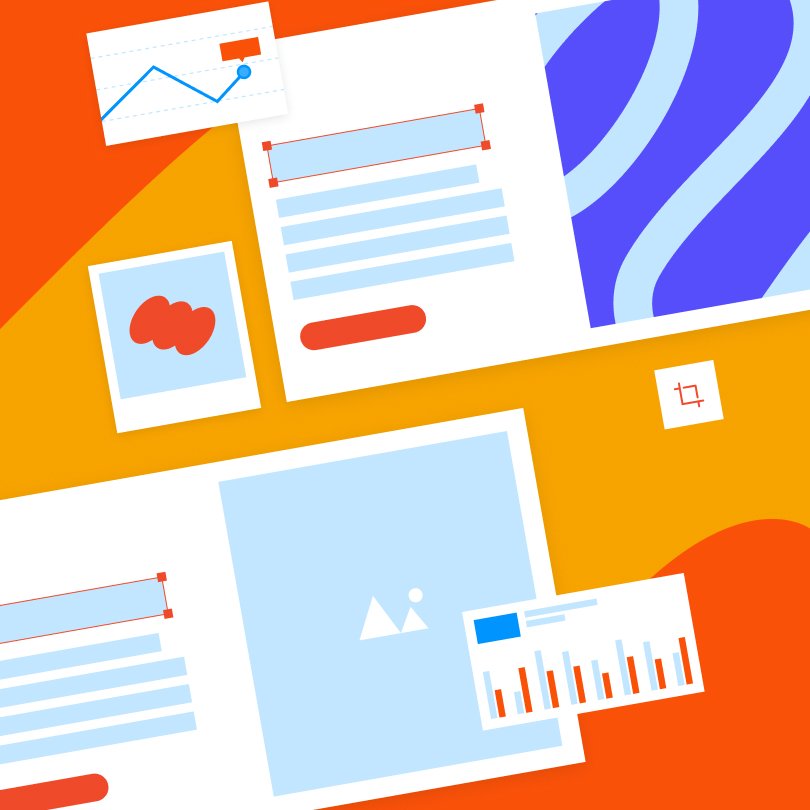Even though 2024 is right around the corner, the WordPress vs. custom website debate still remains. If you're starting a new business or want to upgrade your site design, you might wonder which content management system (CMS) to choose.
Since your website is among the first touchpoints between your company and potential customers, it must be effective and functional. WordPress is often the obvious choice, as so many use it. It has an easy-to-navigate platform, a stream of continuously new plugins, and multiple online documents to help solve potential issues.
No wonder so many freelancers and entrepreneurs take the WordPress route, whether they’re creating a blog or a website for their startup. However, you should consider different functionalities and personalization options before deciding.
The following guide dives into the details concerning WordPress vs. custom website design. These insights will help you make the best choice and give your business the necessary advantage.
Building a Website with WordPress vs. a Custom Website: What You Should Know
The internet is an ever-expanding universe, with over 1,980,000,000 websites inhabiting it and 252,000 being created every day. But before building one, every website owner had to consider what CMS best matches their business needs.
The choice often falls between WordPress and a custom site. However, since over 43 percent of websites on the internet use the former, that often seems like an obvious choice.
If you’re currently torn between these two options, you want to know what each of them entails. Let’s explore the advantages and disadvantages of these two.

Why Should You Build a WordPress Website?
Although WordPress is the most popular CMS, many people are new to website-powering systems. So, what precisely is WordPress?
WordPress is a free, open-source software that enables users to host and build websites. Thanks to its template system and plugin architecture, it’s highly customizable and adaptable to different types of businesses.
You can access this CMS by downloading and installing it on your laptop or PC. If you understand how to set up your website hosting, that’s a relatively simple and quick process.
Many choose hosts that align with WordPress requirements and cover all optimizations. In that case, the system automatically installs every necessary functionality, allowing you to focus on your conversion strategy.

Pros of Building a WordPress Website
In a nutshell, the following are the most common advantages of using WordPress to host your website.
Easy to use
WordPress has a user-friendly interface, making it more accessible regardless of your technical expertise. You don’t need extensive coding knowledge to add plugins, create and manage content, and personalize your site.
Cost-effective
WordPress will reduce initial development costs thanks to it being a free, open-source platform. Moreover, you can find various free premium themes and plugins to ensure your website design matches your vision.
Flexibility
WordPress has multiple plugins and themes, meaning you can customize your website’s functionality and design hassle-free. That helps save time and effort compared to custom development.
Time efficiency
Building a website with WordPress will take less time than developing one from scratch. It’s faster because it has vast features pre-built and customizable.
Community Support
When customizing your website, you may have various doubts or questions. WordPress has an active user and developer community to help you, as well as online tutorials, guides, and documentation.
SEO friendly
WordPress vs. custom website SEO is another common debate among new entrepreneurs and freelancers. But WordPress is typically the winner because it’s created with SEO in mind and includes features like clean code, customizable URLs, and easy-to-use SEO plugins to help appear higher in SERPs.
Responsive design
As most modern WordPress themes are responsive, your website will perform and look well on various devices, including tablets and smartphones.
Smooth content management
If you know your website will have significant content, WordPress is an excellent choice because it’s a CMS. Creating, updating, and organizing content on this platform comes without technical barriers.
Security
WordPress takes its security and reputation seriously, resulting in regular updates to address potential vulnerabilities. Plus, you can install various security plugins to make your website more bulletproof to threats.
Scalability
Your WordPress website will follow your business growth. You can expand its capabilities with various plugins, themes, and functionalities as you find fit.
Regular updates
WordPress ensures regular maintenance and updates, helping you keep up your website with the latest web technologies, standards, and trends.
E-Commerce Capabilities
WordPress wins the WordPress vs. custom website battle if you plan to open an online store. It offers various e-commerce plugins that will help you run your business successfully.
Integration
You might want to integrate your website with various third-party services and platforms (e.g., analytics tools), which WordPress allows.
User roles and permissions
WordPress allows assigning different roles with specific permissions. That is crucial if you must manage multiple contributors or an editorial team.
Cons of Building a WordPress Website
Keep in mind the following downsides of using WordPress.
Limited customization
WordPress might offer an array of plugins and themes but not unlimited customization. Creating a highly unique and complex website may encounter various design and functionality constraints.
Performance issues
WordPress websites can sometimes suffer performance issues when using multiple plugins, themes, and unnecessary features.
Plugin compatibility
Your website may encounter errors or downtime due to conflicting plugins. As a result, it might take time to understand which ones work together smoothly.
Learning curve
Even though WordPress is beginner-friendly, thanks to its relatively simple interface, you might need to learn PHP, CSS, and HTML or hire a web developer for more complex tasks.
Dependency on third-party products
WordPress relies on third-party themes and plugins. Hence, if a developer or company discontinues support for a product you rely on, it can lead to compatibility issues.
Database size
Your website will grow over time, and in many instances, WordPress database and features will follow. However, your site speed and performance may suffer if you don’t optimize it effectively.
Costs can add up
While WordPress is free, you may encounter mounting fees when purchasing premium themes and plugins, hiring developers for customization, and investing in hosting and maintenance.
Backup and recovery
WordPress offers backup plugins, but ensuring reliable backups and disaster recovery plans can be challenging if you’re from a non-technical background.
Why Should You Build a Custom Website?
Custom website design means building a site from zero using HTML, CSS, and JavaScript. When doing so, you don’t have the advantage of an existing CMS platform and must take care of every step.
Even though it’s more complex, people often choose this option because it allows a higher customization level. Starting from scratch means you can build every page the way you envision it and include relevant plugins and features.
Custom websites are the best option if you want to create a complicated and comprehensive site or ensure your navigation, pages, and forms look unusual. But unless you’re a website developer or eager to learn on the go, you will have to hire an agency or a freelancer to help you develop a custom website.

Pros of Building a Custom Website
You’ll enjoy the following benefits if you choose to create a custom site.
Complete control
A custom website is the best choice if you want total control over every aspect of your site’s design, functionality, and performance. It’s the safest way to develop a unique and tailored online presence.
Unique branding
Custom websites allow you to design your site to match your brand identity to an extent WordPress rarely enables. That’s often essential for differentiating your business from competitors.
Optimized performance
You can optimize your custom website for speed and efficiency from the ground up by fully controlling code quality and minimizing unnecessary elements.
Efficient code
Custom websites can have clean, efficient code that decreases redundancy and improves performance, essential for SEO and user experience.
SEO control
Although WordPress websites are better regarding SEO for those without technical knowledge, custom sites enable more control and flexibility. Thanks to that, you can fine-tune the structure and organization of your website for SEO purposes.
Integration flexibility
With a custom website, you can integrate custom-built solutions seamlessly with other systems, databases, or third-party services without limitations.
Unique user experience
One of a custom website’s most substantial assets is the freedom to design a user experience that meets your target audience and business objectives.
Cons of Building a Custom Website
The following are the issues you might expect if choosing to build a custom site.
Higher development costs
Custom websites typically require a more significant upfront investment than WordPress, as you’ll likely have to hire developers and designers, which may be pricey.
Longer development time
Since it includes coding from zero and extensive testing, building a custom website takes more time than setting up a WordPress site.
Complex maintenance
Custom websites often require complex and time-consuming maintenance, including code updates, security patches, and bug fixes.
Plugin and feature development
If you want to add specific features or functionality, you’ll also need custom development, which can be expensive and time-consuming.
Limited theme options
Custom websites may have limited theme or design options unless you invest in custom designs, and that could lead to mounting costs.
SEO efforts
Keep in mind that custom websites may require more manual SEO work since they lack built-in SEO features and plugins available in WordPress.
Custom-Built Website vs. WordPress Design Criteria to Consider
When deciding between a custom website and WordPress, assess the following design criteria to make the right choice:
- Specific design needs: Choose a custom website if your business demands a highly unique and tailored design you can’t achieve with existing WordPress themes.
- Branding alignment: If your website design must closely match your brand’s visual identity, consider custom development for complete design control.
- Complex user interfaces: Custom websites might be better for projects with intricate user interfaces, complex interactions, or custom animations.
- Performance focus: If performance optimization is paramount, custom development enables code and server configurations tailored for speed.
- Content management complexity: Custom websites suit projects with complex content structures or unique data presentation, whereas WordPress excels in content management.
- Budget: Custom websites are generally more expensive due to higher customization levels, while WordPress can be cost-effective for smaller budgets.
- Timeline: Custom development often takes longer, while you can set up a WordPress website quickly.
- Maintenance complexity: Custom websites can be more complex, while WordPress offers user-friendly maintenance options.
- Plugin and feature requirements: Custom solutions suit highly specialized features, while WordPress benefits from a vast plugin ecosystem.
- SEO and mobile optimization: Custom websites offer complete control over SEO and mobile responsiveness, while WordPress provides built-in SEO and mobile-responsive themes.
- Integration needs: Custom websites offer greater flexibility for complex integrations with external systems or databases, whereas WordPress can integrate with various third-party services.
WordPress Theme vs. Custom Website Design
Each option offers unique advantages and considerations. For instance, WordPress themes provide pre-designed templates that are quick to set up and cost-effective, making them suitable for freelancers and small businesses with limited budgets.
On the flip side, custom website design offers complete control over branding, functionality, and user experience. That makes it ideal for those who require unique designs, scalability, and optimized performance.
Nevertheless, you must consider budget, timeline, scalability needs, and branding alignment to make the best decision. The choice should align with your project’s specific requirements and objectives.
Dive into these aspects carefully to determine whether a WordPress theme or custom design best suits your website development needs.
Who Wins the WordPress vs. Custom Website Debate?
This popular debate has no clear winner, as the choice depends on your company and website needs. You should also consider what your target users want to see on your site and which option offers more features to reach your audience.
For instance, a WordPress website is your best bet for a business website due to its flexibility, customization, search engine friendliness, scalability, and safety. However, someone needing a highly unique site might benefit more from a custom solution.
Whether you want WordPress development services or custom-built site services, you might need professional consultation. Consider all the elements at play to make an optimal decision.
If you need more information about the website costs and development, check the following resources:





